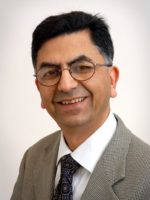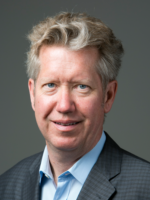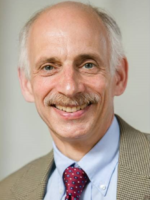The LAC is responsible for stimulating, sustaining, evaluating, and reporting OAIC’s progress towards its goals and enabling integration of OAIC activities. In addition to providing administrative support, the LAC coordinates the activities of Boston OAIC’s investigators, resource cores, its conferences, and career development activities.
- The LAC issues requests for application for its PES, REC, and developmental projects and oversees the review of applications.
- The LAC evaluates the operations of all of its component cores and maintains accountability of its participating members and cores.
- The LAC directs the Boston OAIC through ongoing interaction with the advisory boards, and the NIA staff, monitors the activities and progress of OAIC’s projects.
- The LAC maintains integration across the various components of OAIC through its PROMOTE Program by organizing monthly conferences, annual retreats, and maintaining a website and a newsletter. The OAIC leaders serve as science concierges to facilitate collaborations among scientists from various institutions and access to core resources.
- The LAC leadership scouts the participating institutions for the most promising early career scientists for its REC program, and emerging science projects for PESC or developmental project support. LAC facilitates commercialization of discoveries and innovations through its LINK program.
- The LAC leadership interacts with investigators at other OAICs to establish collaborations, oversees the dissemination of information about the OAIC among stakeholders, and maintains community outreach through the Ambassador Program.
- The LAC stimulates, sustains, integrates, and evaluates the activities of the OAIC, and enables the integration of OAIC activities consistent with its goal of promoting translational research in FPTs.

Shalender Bhasin, MD
Brigham and Women’s Hospital
Harvard Medical School
- Principal Investigator and Director, Boston Claude D. Pepper Older Americans Independence Center
- Professor of Medicine, Harvard Medical School
- Director, Research Program in Men’s Health: Aging and Metabolism, BWH
Download Dr. Bhasin’s biosketch
Dr. Bhasin is an internationally recognized expert in human aging, clinical trials of function promoting therapies for older adults, functional decline in aging, and testosterone biology. He chaired the Endocrine Society’s Expert Panel for the development of Guidelines for Testosterone Therapy. He is a translational researcher, with over 250 peer-reviewed manuscripts, 130 reviews and book chapters. Dr. Bhasin’s research has led to new applications of androgens and selective androgen receptor modulators. His pioneering research in androgen biology and anabolic therapies for aging-associated sarcopenia has been supported by several NIH-funded grants.
He received his MD from the All India Institute of Medical Sciences in New Delhi, India, residency training at Northwestern University Medical School and fellowship training in Endocrinology and Nutrition at Harbor-UCLA Medical Center in Los Angeles, CA.
Dr. Bhasin has been the recipient of numerous teaching and research awards. He has served as: Associate Editor of the JCEM; Chair of the Clinical Guidelines Committee of the Endocrine Society; Chair of the Clinical Guidelines Panel of the Endocrine Society for diagnosis and treatment of hypogonadism; and Chair of American Board of Internal Medicine Endocrinology and Metabolism Board. He has been selected as one of the Best Doctors in America by Castle Connolly and by Boston Magazine. He is the recipient of the 2015 Outstanding Clinical Investigator Award of the Endocrine Society.

Roger Fielding, PhD
Tufts University School of Medicine
- Associate Director, Boston Claude D. Pepper Older Americans Independence Center
- Professor of Medicine, Tufts University School of Medicine
- Professor of Nutrition, Tufts University Friedman School of Nutrition Science and Policy
- Lab Director and Senior Scientist of the Nutrition, Exercise Physiology, and Sarcopenia (NEPS) Laboratory
Download Dr. Fielding’s biosketch
Dr. Fielding is an internationally known researcher who studies the underlying mechanisms contributing to the age-associated decline in skeletal muscle mass, the resultant impact on function, and the potential role of exercise and physical activity on attenuating this process. Dr. Fielding has a strong record of NIH funding and oversaw the development of the interventions for the LIFE (Lifestyle Interventions for Elders) Pilot study and served as the Chair of the LIFE Intervention and Operations Committee. He also is a co-investigator and chair of the Body Composition Analysis committee for the NIA-funded “Calerie” trial.

Lewis A. Lipsitz, MD
Beth Israel Deaconess Medical Center
Hebrew SeniorLife
Harvard Medical School
- Associate Director, Claude D. Pepper Older Americans Independence Center
- Chief of Gerontology, Beth Israel Deaconess Medical Center
- Professor of Medicine, Harvard Medical School
- Director and Senior Scientist, Hinda and Arthur Marcus Institute for Aging Research
- Vice President for Academic Medicine, Hebrew SeniorLife
Download Dr. Lipsitz biosketch
Dr. Lipsitz was one of the first geriatricians to be trained in the Harvard Geriatric Fellowship Program. He subsequently became a National Institute on Aging Academic (K23) Awardee, with Hebrew SeniorLife (formerly the Hebrew Rehabilitation Center for Aged) as his primary clinical and research site. As a fellow, he began a systematic series of epidemiologic and physiologic studies evaluating syncope and abnormal blood pressure regulation, discovered postprandial hypotension in the elderly, and subsequently acquired funding for his studies through an NIA-funded Program Project, which he directed for 20 years. In this capacity he provided on-site management and established strong working relationships with project directors from multiple Harvard-affiliated institutions. This program project supported the prospective, observational MOBILIZE Boston Study, which has elucidated numerous novel risk factors for falls over the past 10 years. Dr. Lipsitz’s research has been quite productive, resulting in 250 original articles in peer-reviewed journals, many of which involve clinical trials and translational research.
During his career, Dr. Lipsitz has received continuous NIA funding for his research, directed an Older Americans Independence Center, led a T32 training program and the Hartford Center of Excellence in Geriatric Medicine at Harvard Medical School (HMS), and acquired two D.W. Reynolds Grants for geriatric education at HMS. He has mentored 34 successful postdoctoral trainees, including 2 Beeson Scholars and 4 T32 trainees, and received the prestigious “William Silen Lifetime Achievement” award for mentoring. His research into various function promoting therapies, access to Harvard-wide resources, academic leadership experience, skills in mentoring, and familiarity with NIA Center Grants and Boston’s academic geriatric community all make him ideally suited to lead the Boston OAIC and its Research Education Component.

